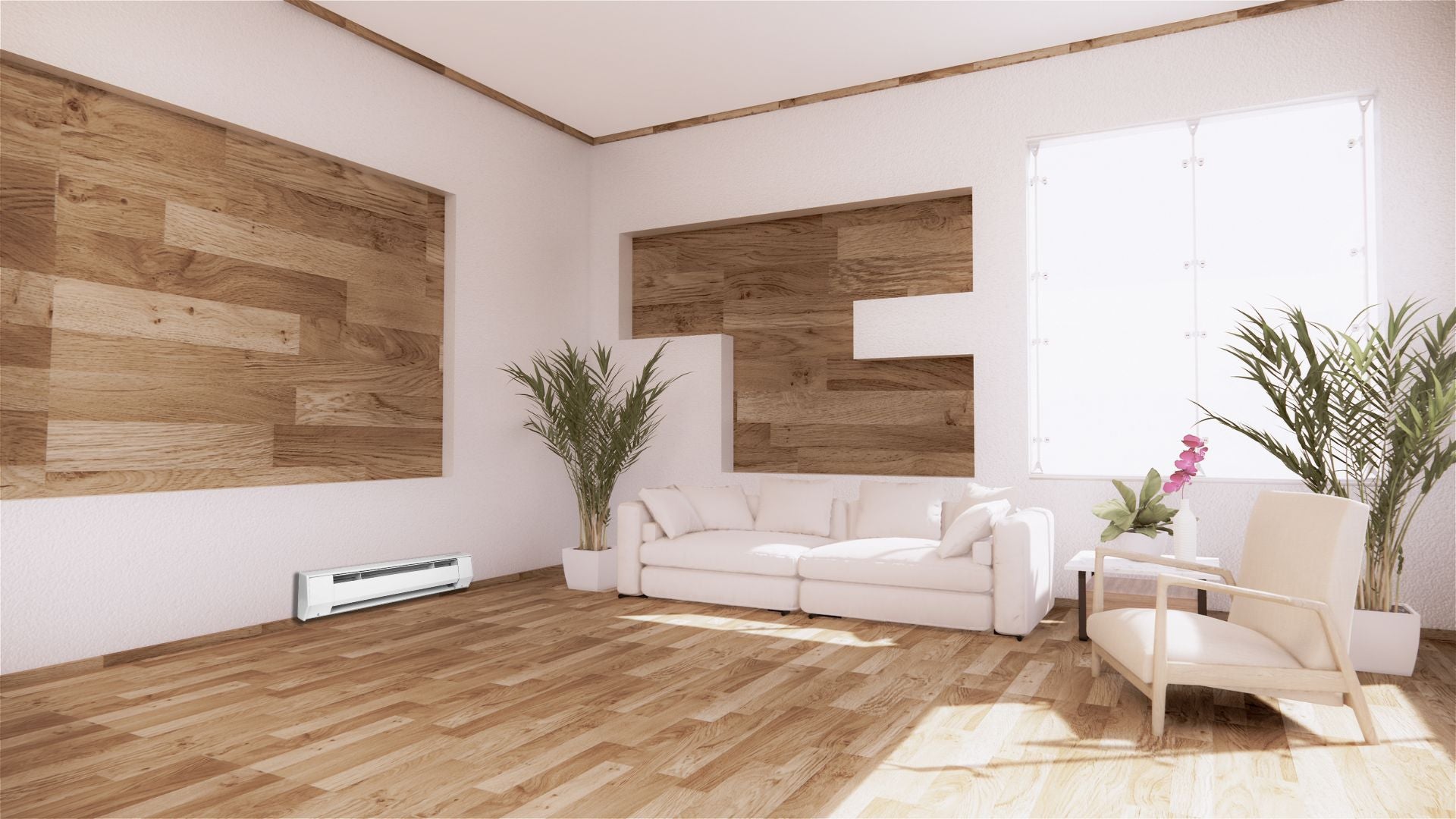Menu
Your cart is empty
Looks like you haven't added anything to your cart yet

Upgrade Your Home with Energy-Efficient Baseboard Heaters
In the quest to make our homes more energy-efficient, we often focus on larger, more visible improvements like insulation and energy-efficient appliances. However, there are plenty of opportunities for energy savings in the details, such as your baseboard heaters. Baseboard heaters are a common method of heating, particularly in older homes, but they are not always the most energy-efficient choice. In this blog post, we'll explore how to update your baseboard heaters to improve energy efficiency and lower your heating costs.
Why Upgrade Your Baseboard Heaters?
Energy Savings
Older baseboard heaters can be energy hogs. They often use more electricity than newer, energy-efficient models. By upgrading your heaters, you can reduce your energy consumption and save money on your utility bills.
Improved Comfort
Newer baseboard heaters are better at maintaining a consistent temperature. This means you'll feel more comfortable in your home as there won't be extreme temperature fluctuations.
Environmental Benefits
Reducing energy consumption not only benefits your wallet but also the environment. Energy-efficient heaters produce fewer greenhouse gas emissions, which is good news for the planet.
Modern Features
Newer baseboard heaters come with advanced features like digital thermostats, timers, and even smart controls. These make it easier to manage your heating system and customize it to your preferences.
How to upgrade your baseboard heaters for improved energy efficiency
Replace Older Units
If your baseboard heaters are more than a decade old, they are likely less energy-efficient than newer models. Consider replacing them with newer, energy-efficient units. Look for heaters with Energy Star certification, as these are designed to be more efficient.
Opt for Hydronic Heaters
Hydronic baseboard heaters are a great choice for energy efficiency. They use heated water to warm the room, which retains heat longer than traditional electric heaters. While they may be more expensive upfront, they can offer long-term energy savings.
Upgrade Thermostats
Older thermostats can be inaccurate and may not provide precise control over your heating system. Installing digital thermostats with programmable settings can help you maintain a more consistent temperature and reduce energy waste.
Optimize Insulation
Make sure your home is well-insulated to prevent heat loss. Check for drafts around windows and doors, and add weather stripping or insulation as needed. Proper insulation will ensure that the heat produced by your baseboard heaters stays inside your home.
Zone Heating
Consider implementing a zoned heating system. This allows you to heat specific areas of your home when needed, rather than heating the entire house. Zoning can save energy by only heating the rooms that are in use.
Regular Maintenance
Keep your baseboard heaters in good working condition through regular maintenance. Clean them and ensure there are no obstructions blocking the heat flow. Dust and debris can reduce efficiency.
Smart Controls
Consider investing in smart thermostat controls for your baseboard heaters. These devices allow you to adjust your heating system remotely and program it to match your schedule. This can lead to substantial energy savings.
In Conclusion
Updating your baseboard heaters to improve energy efficiency is a wise investment that can save you money, enhance your comfort, and reduce your environmental impact. Whether you choose to upgrade to energy-efficient models, improve insulation, or install smart controls, these steps can help you achieve a more efficient and sustainable heating system. In the end, you'll enjoy a warmer and greener home while lowering your energy bills.
Interested in upgrading your electric baseboard heaters? Our American-made baseboard heaters by King are a great, cost-effective option that will enhance the heating efficiency and look of your home.
- Choosing a selection results in a full page refresh.
